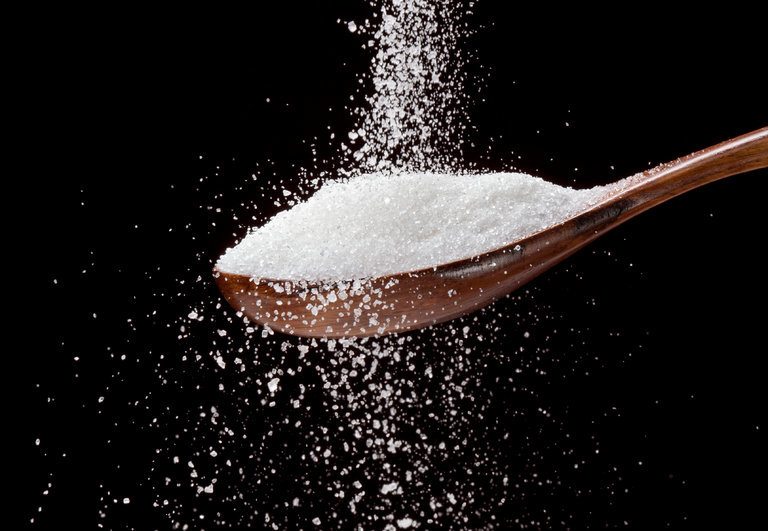- You are here:
- Home »
- Blog »
- Natural Nutrition »
- Time to Break Your Sugar Habit?
Time to Break Your Sugar Habit?

Food addictions can lead to obesity and complications such as diabetes and high blood pressure. However, when people think about their health as it relates to food, they rarely think about sugar as being a core issue. Sugar as an addiction is even less of an issue.
Gary Taubes in his book, “The Case Against Sugar” writes about children and sugar as follows after noting that while it may not lead to short-term staggering or dizziness, it nevertheless has a long term impact:
It (sugar) calms their distress, eases their pain, focuses their attention, and then leaves them excited and full of joy until the dose wears off. The only downside is that children will come to expect another dose, perhaps demand it, on a regular basis.
The Case Against Sugar– page 31
If you are concerned about yourself or a family member, and think that sugar addiction may be a core cause of issues, here are some things to consider about what sugar addiction actually is.
Impact on the Brain
The first thing to know about sugar addiction is how the brain works on sugar. It truly becomes a battle of your brain versus food.
Sugar causes your brain to release a large amount of dopamine as do most drugs which lead to addiction. Dopamine works with regulators in your brain, When large amounts are released these brain regulating mechanisms are dulled requiring more sugar to stimulate the desired response.
This means that it takes more and more sugar to get the same feeling as the first time. Initially, a small cupcake may have been enough for you. Over time, it will take two or more to get the same feeling.
False Sense of Energy
Sugar generates energy, we are led to believe. However, the truth is that it is false energy. Sugar gives your body a rush that allows it to get a small boost by markedly elevating the blood sugar level.
Unfortunately, this boost quickly subsides when the body compensates by elevating levels of glucose to lower the excessive sugar levels in the bloodstream. So, when this boost is gone, you have what is known as a sugar crash.
This crash can leave you feeling tired or light headed and lead to headaches, even to the migraine level. This can also lead the person to seek more sugar increasing their dependence on it. Eventually, the pancreatic glands that secrete insulin get so over used that they wear out leading to blood sugar diseases and even adult onset of diabetes.
Overall Overstimulation
The sugar addiction causes an over stimulation of the system. You feel a reaction that can make you jumpy or anxious. This can be confused with just being excited or energetic.

The problem is that you need to have more and more sugar to get that same reaction. This ties directly to the release of the dopamine and how more than your brain reacts to it.’
Your nerves, cells, and body system as a whole become dependent on the sugar. You begin to crave it without even thinking about it. You’ve conditioned your body to feel like the only way you can get the boost you need is through sugar.
In this way, it is just like any other drug addiction, you are tricking your body into needing the chemical to keep going.
These are only a few of the more noticeable points of sugar addiction. The good news is that they can be reversed by lowering your sugar intake. The bad news is that if actual physiological damage has occurred it is significantly more difficult to recover normality.
Hidden Sugars
Sugar is often present in your food and you may not even know it because it is hidden in processed foods under a variety of labels. One way to spot the hidden sugars is to look for words that end in “ose” like sucrose, maltose, dextrose, fructose, glucose, galactose, lactose, high-fructose corn syrup, glucose solids.
However, even in foods we are taught are healthy for us there is more sugar in them than we have been led to believe. In the documentary That Sugar Film, Damon Gameau demonstrated how easy it was to get 40 teaspoons of sugar a day using “healthy” foods.
Below is an excerpt demonstrating how juice can really stack up the sugar level in our bodies:
As Damon demonstrates, one glass of juice can add up to 16 teaspoons of sugar in the form of fructose. Yet, we have been conditioned to believe that fruit juices are a healthy food- not a junk food. And certainly not a delivery system for a whole lot of sugar.
The Dangers of Being Addicted to Sugar
Sugar addiction not only has side effects such as obesity, as already noted, there are other dangers related to being addicted to sugar. Dangers which can cause a variety of health issues an issues in your daily life.
In fact, you may not even realize what foods and sources of sugar are causing your addiction (as pointed out in the video above), or at the very least contributing to it. Here are a few dangers to consider.
Migraines
As discussed above, your dopamine receptors become dulled over time. This means that you also lose the ability to feel the full effects of how sugar is having an impact on your system.

You don’t notice that it also means that more and more sugar is needed over time to produce more energy. However, sugar also produces inflammation in the body. Since the brain uses a lot of blood, it also experiences inflammation.
When you do not have the amounts of sugar your body has now become used to, the brain cells begin to contract. Pressing on nerves in the brain, you end up with a migraine headache.
If you already get headaches regularly or have serious migraines, sugar may be a culprit and contribute to them getting worse over time.
Hypertension
Hypertension is a more serious side effect of the sugar addiction. This danger refers to the increased amount of high blood pressure in the system.
As noted by Health Central:
In a review article published online in 2015 in the journal Open Heart, researchers culled interventional and epidemiological studies and came up with an eye-opening conclusion: Excessive amounts of sugar, not salt, may be more strongly and directly linked to hypertension and the risk of developing cardiovascular problems.
High blood pressure often leads to heart attacks, strokes, and circulation issues throughout the body. It also causes your blood vessels to become smaller and narrower which affects your entire body and the blood flow through it.
Reducing or eliminating sugar, will reduce your risks and help you avoid these cardio-vascular dangers.
Metabolic Issues
Another danger includes fat deposits in your cells which can cause problems with obesity and problems with the way cells function in your body.
A side effect of the over stimulation of insulin mentioned above is that it also signals the body to take up fat and hold it in the cells. This can not only lead to obesity but also interfere with normal metabolism of fat leading to excessive fat deposits in the blood making circulation and blood flow difficult, especially with hypertension dangers that may already be present.
Make no mistake about it, sugar (including fructose which is even more dangerous than sucrose) leads to obesity by interfering with normal, metabolic fat processes in the body.
That, however, is only the tip of the iceberg. The dangers of sugar are much more dangerous and numerous than you have been led to believe as you will find in the free guide for breaking your sugar habit available.
There are other dangers to consider such as its impact on your dental health- an expensive side effect of sugar intake as well. As pointed out in the book Sugar Crush: How to Reduce Inflammation, Reverse Nerve Damage, and Reclaim Good Health by Dr. Richard Jacoby over the course of his career in neuropathy he was able to connect the dots and
determine how sugar is the common denominator of many chronic diseases.
More Pesticides
Since it is estimated that about 55 to 60% of sugar produced in the U.S. comes from sugar beets, it is likely that by consuming sugar you are adding to your internal pesticide stores.
Nearly all of the beets grown for sugar in the U.S. are genetically modified to withstand Monsanto’s Roundup, which contains the known carcinogen (cancer causing) pesticide, glyphosphate, you are likely getting residues of this nasty pesticide with your sugar.
More bad news, sugar cane is also treated with Roundup as well since it is the only sugar cane ripener approved for use in the U.S.
In case you missed my post, Monsanto (the first to use GMO’s) has already been hit with law suits totalling in the mult-millions for cancer damages to Roundup users, with many more lining up. (See Bayer May Be Regretting Its Purchase of Monsanto As Glyphosate Cases Line Up for more.)
Free Report – Breaking Your Sugar Habit
If you or a family member has a sugar addiction or habit you’d like to tame, download the free report and begin now to take steps to remove or reduce sugar content in your daily diet.
In place of eroding your health with the sweet poison, get it back on track. The pleasure of taste alone is not worth the lifetime of pain that can result.
For your copy of the free report on breaking your sugar habit, click here.
Related Posts
Free Survival Nutrition Course – 8 Hours Plus PDF
5 Reasons to Cut Back on Animal Foods
Protein – Which Is Better for Your Health – Animal or Vegetable?
Wall Street Journal Investigation Finds Dumpster Trash Food and Supplements Being Sold as New
Tackling Obesity Begins with Awareness and Ends with Action
Think Junk Food Can’t Lead to Health Issues? UK: Teenager Goes Blind After a Limited Diet of French Fries, Pringles, White Bread, Ham and Sausage
Bayer May Be Regretting Its Purchase of Monsanto As Glyphosate Cases Line Up
Duke University’s World Food Policy Center – Podcasts and More


